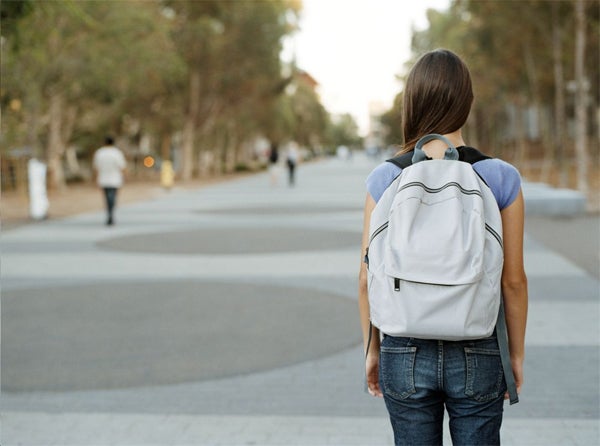Gap year: off into the unknown
High-profile tragedies have made parents wary, but well-planned gap years are worth the risk, says Laura Jones

When I left Manchester for a year in Paris, my mum stood at the airport and cried. I don’t think she worried too much while I was gone – just the standard maternal anxiety. I did, however, have a horse riding accident, a (minor) car crash and on several occasions found myself followed by Parisian men. And the French capital is hardly the most exotic or dangerous of places.
Yet the recent high-profile deaths of young people abroad have placed gap year danger at the top of the agenda. Meredith Kercher was killed in Perugia, Italy last November, in disturbing and still unravelling circumstances. And Laurent Bonomo and Gabriel Perez, both 23, were recently stabbed to death in London – all three were studying at foreign universities. April’s bus crash in Ecuador killed four gappers and their tour guide, while the deaths of British teenagers Scarlett Keeling in Goa and, more recently, Cara Marie Burke in Brazil have done little to ease fears.
Safety concerns
So should we be more worried about safety on gap years or sabbatical trips? Are students or youngsters themselves thinking twice before going away now? Or does sensational news sell, while gap years remain essential for an authentic world view?
Sarah Holmes, 23, recently spent a year in South America as part of her Hispanics and history degree, and is well aware of the risks we sometimes take abroad.
When she told her parents she’d done a bungee jump in Peru they were “far from pleased, especially as safety standards are much lower than at home”. Equally, when she cycled along the world’s most dangerous road in Bolivia, where a young man recently died and for which you need extra insurance in case your body has to be flown home, she was again aware of the possibility of a lethal drop to her death.
“It is awful when you hear about these tragedies,” she admits. “But you must remember that millions travel every year and these horror stories are so rare. In Rio, for example, you may get pick pocketed but it’s unlikely you’re going to die. And, after all, people get mugged on a daily basis in London or Barcelona.”
Holmes says you also have to remember that you stand out as a foreigner and therefore you could be an easy target, probably carrying cash or a camera. “But you simply have to be aware of this; the risks of a gap year don’t outweigh the benefits in my opinion.”
The cases that dominate the news do not supply strong enough reasons to avoid gap years or study abroad since they are a tiny minority; horrific for those involved and shocking to those who take an interest in international affairs, but far from a regular occurrence. It is important to embrace issues of cultural sensitivity and remain aware of your surroundings.
“Bear in mind, you may have to adjust your behaviour and dress or act differently. For instance ignoring a guy in England if he approached you would be exceptionally rude but in Argentina guys can get the wrong idea if you even speak to them,”says Holmes.
Chris Ash at Global Vision International (GVI) agrees that there are various cultural differences to note depending on the country. In India, midriff baring can be a problem (although not if you’re wearing a sari) and in some indigenous tribes, tattoos can symbolise violence. Thankfully, companies like gapyear.com and GVI offer all manner of health and safety advice from scorpions to snakes and diving disasters.
Tom Griffiths, founder of gapyear.com, advises you to get online or purchase a guide and get clued up. He is conscious of the parental desire to protect one’s offspring but assures us there is no reason to be overwhelmed or worried. “Nowadays there is a well-trodden backpacker route and close to two million 18-30 year-olds take it annually,” he says. “Statistics from 2001 indicated that it was safer to take a gap year than to go to university.”
Griffiths says it is important to make sure you have travel and medical insurance, and the correct jabs. But he is keen to emphasise how much of a positive difference a gap year can make to your life: “We are part of a global economy and we need to understand that and be part of it.”
Join our commenting forum
Join thought-provoking conversations, follow other Independent readers and see their replies
Comments
Bookmark popover
Removed from bookmarks